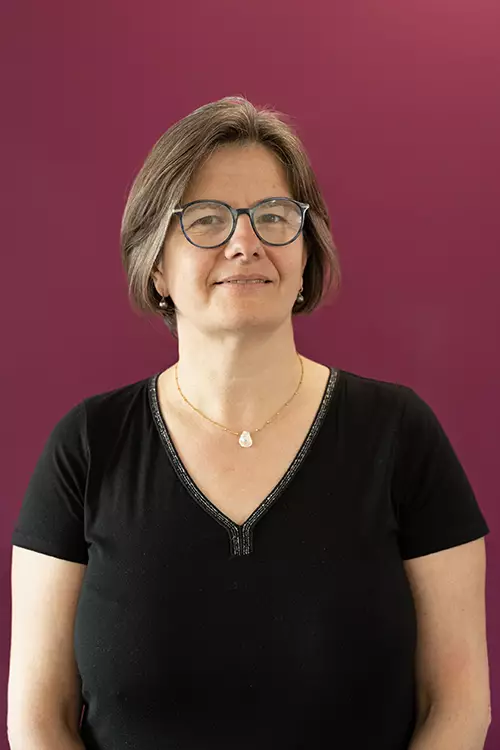Sophie Chauvet, alumnus of Ecole Normal Superieur Paris Saclay (Ecole Normale Superieur of Cachan), got her BSc in biochemistry at the University Paris Diderot and her PhD at the University of the Mediterranée (Marseille) in 1999 in developmental biology.
After a post doctorate at the Center of Immunology of Marseille-Luminy, focused on the study of innate immunity in C.elegans, she entered academia in 2001, as assistant and later as full professor in development biology at Aix Marseille University. Since 2011 her research focused on cellular and molecular mechanisms implicated in the neural circuit’s formation and more specifically in axon guidance.
Her recent research focuses on reorganization of neuronal circuits in organs affected by cancer. During her career she has been awarded as an IUF junior member and has served as elected expert in national commissions for evaluation of research and scientific careers at CNRS and for best training practice and guidelines at Aix Marseille University. This broad spectrum of experiences together with her comprehensive scientific vision led to the appointment in 2020 as Delegate Vice-President in charge of life sciences and Biology at Aix Marseille University.
She is the privileged interlocutor for research units, institutes, faculties and doctoral schools in these disciplinary fields and hence, an original essential actor of the internal dialogue between AMU governance and teaching and research structures.
Nerves have recently emerged as new regulators of cancer progression. While in many cases, nerves stimulate tumor growth, we showed that the sympathetic nervous system has an opposite protective function against pancreatic ductal adenocarcinoma (PDAC). Indeed, the selective ablation of the sympathetic innervation of the pancreas accelerates tumor progression via the reprogramming of tumor-associated macrophages (Guillot et al., 2022). We are now currently studying the mechanism of the neural plasticity in mouse models of PDAC. We use 3D light sheet fluorescence microscopy to visualize in whole pancreas the architecture of neural networks and their interactions with adjacent cells and structures such as Schwann cells.
